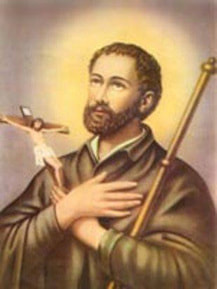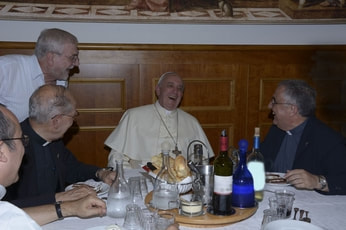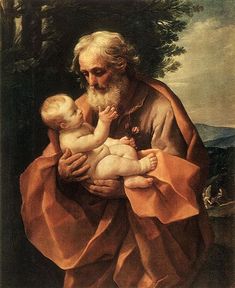 This past Sunday, the First Sunday of Advent, my home parish of St. Francis Xavier marked a big milestone in its history – we have just concluded much needed renovations to the church building. The event was commemorated with a special Mass celebrated by our archbishop, Cardinal Sean O’Malley, along with many concelebrating priests and assisting deacons who have been assigned to the parish over the years. It was also my first “official” trip home to the parish since entering seminary this past summer. This was a happy and exciting day for the entire parish and was a great way to usher in this season of Advent, this season of hopeful anticipation of the coming of Jesus Christ. These renovations to the parish have been in progress for many years, ever since I was a little kid serving Mass. One might say that the community has endured a long season of Advent – a long time of patiently awaiting this rejuvenation of our sacred space, our spiritual home. And the patience definitely paid off! We now have a more beautiful place to pray, to celebrate the sacraments, and to gather as a parish community to worship God. This visit home moved me to consider how St. Francis Xavier, the namesake and patron of the parish, would have approached such an extended season of Advent. Francis Xavier, the great Jesuit saint, brought the message of Christ to the people of Asia through his devoted missionary endeavors. Being sent on mission was not the way Francis had envisioned his priesthood, for he was preparing to dedicate his life to the intellectual pursuits of the faith and the fostering of the newly formed Society of Jesus. But, Francis Xavier was called to become a missionary priest and, obediently, he went. Francis most certainly had many gifts and received many graces in order to accomplish his evangelizing activity in a far corner of the world with few companions. Of course, he had great faith in God and in the Church. Francis Xavier would have been a man with patience, endurance, and courage, for these are necessary to persevere through the difficult trials that come with priesthood and religious life, evangelization, and mission in foreign countries. He must have had great trust in the Lord and trust that his efforts to bring Christ to the people of Asia would indeed bear much fruit. Francis Xavier must have been a joyful man, one who attracted others to become followers of Jesus Christ. Most importantly, Francis Xavier must have been a filled with hope – hope for all of those people he evangelized, hope in the Society of Jesus, and hope in the Christian message of salvation. This, it seems, is the greatest virtue that we can learn from Francis Xavier as we enter into this Advent season – hope. The sense of hope that undoubtedly carried Francis Xavier through his missions is similar to what helped the parishioners at St. Francis Xavier Church endure the long journey toward a renovation of their sacred space – the hope that our efforts and sacrifices may lead others to find Christ, and that one day we might all be united with him in Heaven. Though we are not necessarily called to be great missionary saints, we can certainly evangelize within our families and communities as we gather to celebrate the birth of the Lord. May St. Francis Xavier be a guide for us this Advent, as we try to “renovate” our lives to become more joyful, courageous, and hopeful witnesses to the wonderful Gospel message with the hope of bringing others to Christ. Joe Hubbard is a Collaborator with the Catholic Apostolate Center and a Seminarian for the Archdiocese of Boston.
0 Comments
“In the world there is often a lack of joy. We are not called to accomplish epic feats or to proclaim high-sounding words, but to give witness to the joy that arises from the certainty of knowing we are loved, from the confidence that we are saved”
(Rejoice! (Letter in Preparation for the Year of Consecrated Life), n. 3) Last month, on the feast day of St. Ignatius of Loyola, Pope Francis went for lunch at the Generalate of the Jesuits. As I reviewed the pictures from his visit, joy and happiness are very evident. He appears very comfortable and relaxed with them, even though he may not know them well individually. Why is he comfortable? As a member of a religious community, I think that I can venture an answer. He is among those who shared a similar formation as he did as a member of the Society of Jesus. Technically, he formally ended his time as a Jesuit when he became a bishop. Bishops cannot be under the authority of the superior of a religious community. They can, though, ask to continue to use the religious initials of their community as well as wear the habit. Cardinal O’Malley, the Archbishop of Boston, continues to use the initials of the religious community that he came from, the Capuchin Franciscans, as well as wear the habit. Many religious communities even officially continue to count bishops among their membership. Some might think this strange, but the reality is that once a person is part of a religious community, it is part of who that person is and how the person approaches God, life, ministry. When you share a common formation and lifestyle from a relatively young age, that formation does not simply go away. It is a lifestyle that one freely chooses and it forms and informs the person. Once committed to, consecrated life (cf. Catechism of the Catholic Church, n. 913-933) is not something that can easily be cast aside. Even those who have left religious communities often continue to live the spirituality of that community as a single or married person or diocesan priest. I have seen it time and time again. Twenty-eight years ago today, I made my First Consecration of Promises as a member of the Society of the Catholic Apostolate (Pallottine Fathers and Brothers). Our six promises of poverty, chastity, obedience, sharing of resources, spirit of service, and perseverance have provided me with a way, within the context of our community life, to live the charity of Christ. I make no claim to live it perfectly, but I try to live it as authentically as possible. The way that I live more authentically is through the assistance of the members of my community who “urge me on” to live more fully in Christ’s love. This summer, more than most, I have had to even more deeply reflect on the quality of my life as a member of the Society. Am I living as an apostle, as St. Vincent Pallotti called all to do, reviving faith and rekindling charity? Have I fully surrendered, given, and offered myself to God, as the form of consecration of my religious community challenges me to do? If not, then why not? These questions have been very much on my mind as I form, with the help of God, a new member of the Society who began Postulancy only a few days ago. Thirty years ago last month, I did the same and have grown and developed spiritually and otherwise in ways that I would have never thought or imagined. As I work in formation with our Postulant, Brandon, I try to teach, but once again God causes me to learn and for that I am full of gratitude and joy. Pray for those in consecrated life, especially as the Church prepares for the Year of Consecrated Life that will begin this coming Advent! Fr. Frank Donio, S.A.C., is Director of the Catholic Apostolate Center and teaches for Saint Joseph’s College Online. This blog post was first published on August 17th on the St. Joseph’s College of Maine Theology Faculty Blog. Click here to learn more about our cooperative alliance with St. Joseph’s College Online The lights began to dim as I settled into my seat and a hush fell over the crowd. Sounds began to emerge from the pit in front of me as various instruments were heard tuning. Then the auditorium erupted into applause as the conductor popped into view, acknowledged the audience and struck the downbeat. With that, my first professional opera viewing experience was underway!
I recently had the opportunity to see the Washington National Opera’s staging of Giuseppe Verdi’s La forza del destino (or, The Force of Destiny, for those of us who don’t know Italian). The story follows a wealthy noble family who is struck with tragedy when the lover of the family’s daughter accidentally kills the father when a fight erupts between lover and father. The ensuing story tells how the daughter, Donna Leonora, copes with the tragedy while Leonora’s brother seeks revenge for his father’s untimely death. One of the most moving parts of the evening was when Donna Leonora, tired and distraught after running away from home, seeks out the solace of the nearby religious community. With her brother seeking to kill her, a fiancée who is now a murderer, and a father who has died, Leonora comes asking the Abbot for peace and God’s mercy. To make a long story short, the Abbot listens to Leonora, blesses her and offers her the opportunity to kneel before the cross and pray with the Blessed Sacrament. He then invites her to join their community upon which Leonora sings: Eternal Father, thy grace smiles on the rejected one, an uncommon happiness fill me: I am blessed. I feel my heart regenerate within me; Rejoice O angels, God has forgiven me! While this portrayal was dramatized, it’s no doubt that the Church can still be place of healing and restoration in our world today, especially for those who have walked away from their faith, have suffered a great deal or are simply in need of God’s mercy and peace, just like Donna Leonora. During this scene I was reminded of the words of Pope Francis in his recent interview with the Italian Jesuit journal, La Civilta Cattolica, in which he says: …the thing the church needs most today is the ability to heal wounds and to warm the hearts of the faithful; it needs nearness, proximity. I see the church as a field hospital after battle. It is useless to ask a seriously injured person if he has high cholesterol and about the level of his blood sugars! You have to heal his wounds. Then we can talk about everything else…The most important thing is the first proclamation: Jesus Christ has saved you. And the ministers of the church must be ministers of mercy above all. As apostles of Christ in today’s world we are called to help spread God’s mercy and rekindle His love to those who need it most in our world. We all know someone who is in need of God’s mercy and we can be the medics that Pope Francis speaks of in the lines above. Certainly, transformations might not be as dramatic as seen in the movies, on stage or even in stories we hear from the lives of the saints, but even the smallest ways in which we can be ambassadors of Christ’s mercy can make a world of difference for those who need it most. David Burkey is the Communications Coordinator for the Catholic Apostolate Center St. Joseph is known as the Shadow of the Eternal Father, the Perpetual Adorer, the Patron of the Universal Church, the Patron of the Suffering and Dying, the True Foster Father of Jesus Christ, and Most Chaste Spouse of the Ever-Virgin Mary. He shows how a person must rely on the Father’s providence, trust the boldness of the Holy Spirit, and cherish the Incarnate Jesus, all while staying close to the Virgin Mary. St. Joseph is a model of faith and in a unique way he upholds the dignity of all vocations.
Joseph survives and thrives as a person of faith by abandoning his life and family completely to God. The Devil, Herod, and everyday difficulties, like not being able to find a place for his wife to give birth, threaten Joseph’s most precise gifts. A faithful person humbly resigns what they care about most to the Giver of All Gifts only to receive back what is best blessed and renewed. Joseph protects his family through surrendering them to God. How wonderful St. Joseph’s prayers must have been. The way he took his fears and insecurities to God to receive true strength must have been so beautiful. There are many ways that we know that St. Joseph’s faith was profound. The Virgin Mary knows for sure that she has never been with a man, but Joseph does not. St. Joseph trusted in the words of an angel in a dream. The angel said, “Joseph, son of David, do not be afraid to take Mary home as your wife, because what is conceived in her is from the Holy Spirit” (Mt. 1:20). Catholic theology of the Trinity had not been developed yet leaving Joseph not knowing with any sort of clarity who this “Holy Spirit” was that had impregnated his fiancée. St. Joseph demonstrates that his faith is not the kind that limits God by being attached to personal plans and expectations, but is one that allows God to act boldly. His faith is fulfilled by being lived out; he did take Mary as his bride, he did raise Jesus as his son, he did go wherever the Lord commanded him. Joseph fled to Egypt when Jesus’ life was being threatened and he returned home when he was told, doing everything in accordance with God’s will and timing. The obedient Joseph, as the Perpetual Adorer of the Christ-child can also help us grow in intimacy with Christ. Have we ever realized that the baby Jesus was most likely birthed into the callused hands of his carpenter foster-father? St. Joseph knew Jesus in a radically unique and intimate way. Joseph was able to adore the Eucharist while it was still breathing. We can relate to Joseph in the struggles that he faced and the fact that he was not spared from original sin. He was broken, flawed, sinful, fearful, and even being tempted. Joseph, as most chaste spouse, did not reduce Mary to an object of pleasure but he honored her as a whole person. We can imagine that Joseph embraced his call to chastity not begrudgingly but with great joy. Their intimacy honors the glory of creation by neither of them trying to dominate or manipulate the other for personal gain. How immaculate their interactions must have been! St. Joseph and Mary model for us a pure intimacy rooted in trust, commitment, and the will of God. With these considerations in mind we see St. Joseph as an inspiration for all people because he was called to marriage, parenthood, and celibacy. Whether we are called to marriage, religious life, priesthood, or the single-life we should entrust ourselves to St. Joseph and know that he understands the burdens that we carry. As a good father he will teach us to trust God completely and to allow the Holy Spirit to move in dramatic and unexpected ways. With Joseph as a model of faith we will honor the dignity of all people, love Mary, and intimately adore the Incarnate Christ. Daniel Hoover works at St. Mary’s Parish in the Diocese of Wilminigton, DE as a Lay Ecclesial Minister. When the word “Vocation” is mentioned, most often people equate it to Godly calls to the priesthood or consecrated religious life. Some think of their own conceptions of God’s calling to this life while others, having ruled themselves out of the running for religious life, may consider their vocation decision already made. Still, others consider “Vocation” to mean any of the “Big V” or apostolic vocations – marriage, religious or the consecrated single life.
Now, instead consider the phrase “Personal Vocation”. This may not bring much to mind, as it’s not typically a widely used term, but it is one that applies to everyone. So what is it? According to Germain Grisez and Russell Shaw in their book “Personal Vocation”, it is the realization of what God is calling you to at this very moment. For example, the vocation of a student doesn’t begin once he or she graduates with a certain degree, rather, that time spent studying should be used to discern how one could be the student God has called him or her to be. Grisez and Shaw propose that the same is true for discerning our apostolic vocations. From the time we are young, if the only emphasis is about deciding the state of life that God has called us to, then once we commit ourselves to marriage or religious life, we are left asking “What now?” Any married couple, priest or religious brother or sister would probably tell you that just making those vows doesn’t make life a cake walk, and in fact, each day brings a renewed commitment to the promises they made. If each day we approach our apostolic vocation as a means to fulfill our personal vocation, we will always find ourselves – no matter our state of life – continually working to fulfill God’s plan for our lives, the ultimate goal. As Blessed John Henry Newman once said: “For in truth we are not called once only, but many times; all through our life Christ is calling us. He called us first in Baptism; but afterwards also; whether we obey His voice or not, He graciously calls us still…He calls us again and again, in order to justify us again and again, and again and again, and more, to sanctify and glorify us.” A personal vocation is not about allowing past decisions to deter us from the glory that God calls each of us to, even if we may have previously neglected Him. Our previous decisions and actions, good or bad, have all been in preparation for this very moment in which God can use each of us. If we just take the time to listen for His voice we will hear His call. How is he calling you? David Burkey is the Communications Coordinator for the Catholic Apostolate Center. |
Details
Archives
April 2024
Categories
All
|
About |
Media |
© COPYRIGHT 2024 | ALL RIGHTS RESERVED





 RSS Feed
RSS Feed